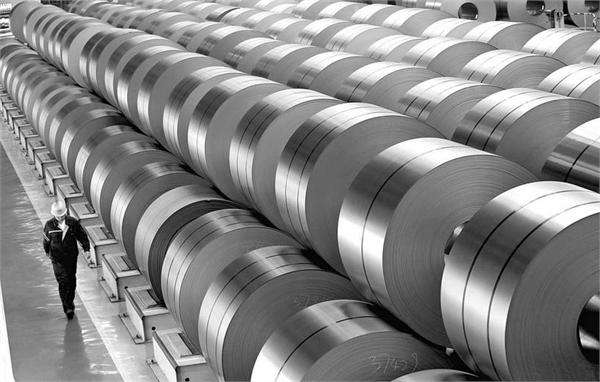South Korea is assessing the potential impact on its steel products of Europe's toughened carbon restrictions to be implemented in 2023 to come up with measures to cope with the policy.
The carbon border adjustment mechanism (CBAM) is expected to weigh down the country's steel products exports of steel products, according to the trade ministry
Under the CBAM, European importers of steel and aluminum, electricity, cement, and fertilizer must purchase "carbon certificates" commensurate on the amount of carbon emitted on producing the products.
A trade ministry official insists that the policy should follow the World Trade Organization guidelines and should not work as a new trade barrier.
The price competitiveness of South Korea's steel and aluminum products in the European market may suffer due to the carbon emissions produced.
The Korea Institute for International Economic Policy raised the probability that European importers would pass on the additional burdens on South Korean exporters.
Last month, the Federation of Korean Industries requested the EU to exclude South Korea from the upcoming measure, pointing out that it may hinder free trade.
A trade ministry official also noted that local steel manufacturers expressed concerns about the divergent opinions of EU members on carbon restrictions.
Following a transition period of three years, the restrictions would be fully implemented in 2026.



 Gold and Silver Prices Rebound After Volatile Week Triggered by Fed Nomination
Gold and Silver Prices Rebound After Volatile Week Triggered by Fed Nomination  Oil Prices Slip as U.S.-Iran Talks Ease Middle East Tensions
Oil Prices Slip as U.S.-Iran Talks Ease Middle East Tensions  Indian Refiners Scale Back Russian Oil Imports as U.S.-India Trade Deal Advances
Indian Refiners Scale Back Russian Oil Imports as U.S.-India Trade Deal Advances  Weight-Loss Drug Ads Take Over the Super Bowl as Pharma Embraces Direct-to-Consumer Marketing
Weight-Loss Drug Ads Take Over the Super Bowl as Pharma Embraces Direct-to-Consumer Marketing  Yen Slides as Japan Election Boosts Fiscal Stimulus Expectations
Yen Slides as Japan Election Boosts Fiscal Stimulus Expectations  Sony Q3 Profit Jumps on Gaming and Image Sensors, Full-Year Outlook Raised
Sony Q3 Profit Jumps on Gaming and Image Sensors, Full-Year Outlook Raised  U.S. Stock Futures Rise as Markets Brace for Jobs and Inflation Data
U.S. Stock Futures Rise as Markets Brace for Jobs and Inflation Data  Prudential Financial Reports Higher Q4 Profit on Strong Underwriting and Investment Gains
Prudential Financial Reports Higher Q4 Profit on Strong Underwriting and Investment Gains  Dow Hits 50,000 as U.S. Stocks Stage Strong Rebound Amid AI Volatility
Dow Hits 50,000 as U.S. Stocks Stage Strong Rebound Amid AI Volatility  Toyota’s Surprise CEO Change Signals Strategic Shift Amid Global Auto Turmoil
Toyota’s Surprise CEO Change Signals Strategic Shift Amid Global Auto Turmoil  Missouri Judge Dismisses Lawsuit Challenging Starbucks’ Diversity and Inclusion Policies
Missouri Judge Dismisses Lawsuit Challenging Starbucks’ Diversity and Inclusion Policies  SpaceX Pivots Toward Moon City as Musk Reframes Long-Term Space Vision
SpaceX Pivots Toward Moon City as Musk Reframes Long-Term Space Vision  Lee Seung-heon Signals Caution on Rate Hikes, Supports Higher Property Taxes to Cool Korea’s Housing Market
Lee Seung-heon Signals Caution on Rate Hikes, Supports Higher Property Taxes to Cool Korea’s Housing Market  Trump Backs Nexstar–Tegna Merger Amid Shifting U.S. Media Landscape
Trump Backs Nexstar–Tegna Merger Amid Shifting U.S. Media Landscape  Russian Stocks End Mixed as MOEX Index Closes Flat Amid Commodity Strength
Russian Stocks End Mixed as MOEX Index Closes Flat Amid Commodity Strength  Once Upon a Farm Raises Nearly $198 Million in IPO, Valued at Over $724 Million
Once Upon a Farm Raises Nearly $198 Million in IPO, Valued at Over $724 Million 































